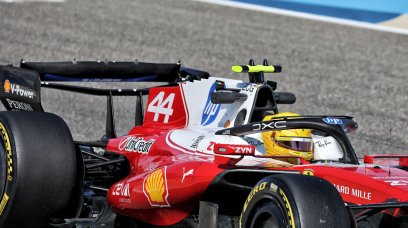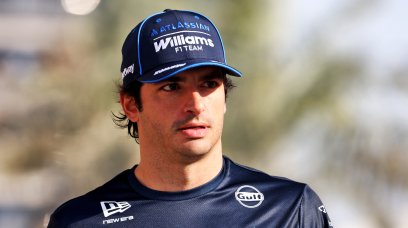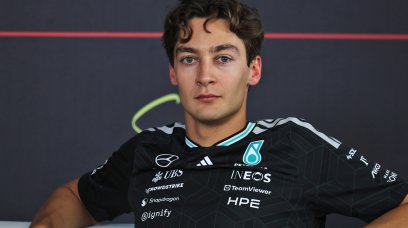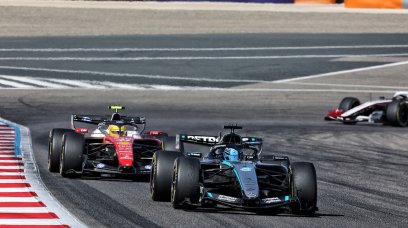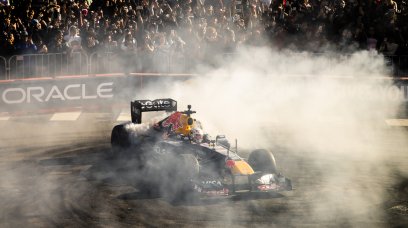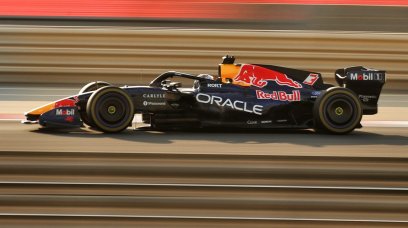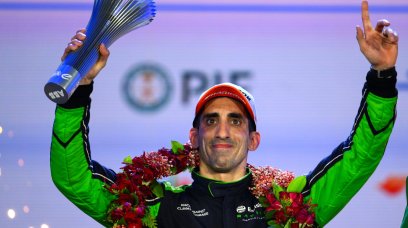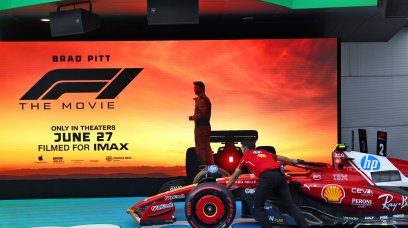Haas team principal Ayao Komatsu has outlined the "absolutely fundamental" changes that have occurred at the American team this season to boost it up the F1 pecking order. Since entering the championship in 2016, owner Gene Haas has run a lean operation and in the early seasons the frugal approach paid dividends as the team punched well above its weight. However, more recently it has struggled and to many, the model employed by Haas is not viable in modern-day F1. In addition to the lack of investment was a 'blame' culture in which staff could not flourish , according to Komatsu, who served as trackside engineering director prior to stepping into the team principal role at the start of the year in place of Guenther Steiner. This prevented Haas getting on top of issues inherent in the car, and fostered a belief that the team could not successfully port upgrades during the season.
However, under Komatsu's leadership, the American squad is enjoying a resurgence this year - and has shattered the prevailing in-season development theory. Haas finds itself seventh in the constructors' standings and is on course for its highest finish since coming firth in 2018, the high-water mark over its eight complete seasons in F1. Speaking exclusively to RacingNews365 , Komatsu explained the changes at Haas that have laid the groundwork for its success this term. "Working as a team," the 48-year-old responds when asked what he feels has gone well during his short tenure at the helm of the American outfit. "The atmosphere is very positive, and it was positive even before we got any results. Approaching pre-season testing in Bahrain, I felt like people started working together."
'Clear objectives' and strategy
Komatsu described a team heading into the year with "clear objectives" and highest on the priority list for Haas was tackling its worrisome race pace. "Clear objectives" is a phrase that best encapsulates the Japanese engineer's approach to life as team principal, and it is none-more evident than when assessing the treatment of the team's single biggest car issue. In 2023, the American squad produced a car capable of strong one-lap form, especially at the hands of Nico Hulkenberg. However, on Sundays the German driver was powerless to prevent his VF-23 slipping back during the grand prix. The team finished the season bottom of the constructors' championship with 12 points - 15 fewer than it has already secured in the opening 14 rounds this season. Central to its torrid long-stint performance the car being disproportionately hard on its tyres compared to its rivals. With both Hulkenberg and Kevin Magnussen unable to manage the issue adequately, whatever underlying pace was in the VF-23 proved redundant. Therefore, come pre-season testing, Haas took the "pretty extreme measure" of almost entirely shifting focus onto this critical flaw, sacrificing convention and nearly all emphasis on short-run pace - and it has proved fruitful. To Komatsu, at the heart of the problem was a lack of open, honest conversations and transparency, things he agreed needed changing when he took on the team principal role. "I've always said, if objectives are not clear, people aren't sure why we're doing certain things, why there are certain priorities," he explains. "So, start from clear objectives, what do we want to achieve? And a strategy, how are we going to achieve those objectives? "Once those two things are communicated clearly, then everybody knows these are the things we want to achieve, let's say, during winter testing, first part of the season, second phase of the season, etc., etc., then there is a strategy. "Of course, I'm not saying that strategy is set in stone, but you've got to have a clear starting point and clear communication helps provide clarity, honesty and transparency. "Then, as you progress, you find new issues, you find some areas are better than expected or worse than expected, and that objective strategy needs adjustment. But you've got to have that baseline to start from. You cannot just start, 'right, let's run the car, see what happens' and take it from there."
Shattering the 'upgrades are a waste of money' illusion
What started with remedying a long-standing achilles heel in pre-season has spread into Haas' ability to develop throughout the year. Komatsu believes the over-arching process changes and encompassing cultural shift within the team has been critical to the its turnaround in fortunes this year, allowing it to course-correct from an environment that too often jumped to conclusions about the virtue of a development path to one that understands that upgrades are not merely a "waste of money." "Honestly, that's absolutely fundamental," he replies when asked whether the new-found clarity in the team has translated to success on track. "If you look at what's been happening previous years, why we [Haas] couldn't develop the car - there's been a lot of talk about it - but I've always believed we've got good people. "So, there's no reason for me, if we put it right - I really didn't see any reason why we couldn't upgrade the car during the season. "But sometimes when things didn't go well, the action wasn't the correct one. The action was like: 'Oh, look, upgrades never work. Let's save money and don't do upgrades.' "No. The issue is upgrades should work, so why did they not work? 'Let's look into it' - that should be the reaction, rather than saying: 'upgrades are a waste of money'. "In Formula 1, everyone knows that if you stand still, you go further back. If you make a mistake, let's be honest about it - best thing you can do. What happened has happened, try to move forward. "Move forward as a team, not blame, saying: 'Oh aero[dynamics] didn't deliver, or designers didn't deliver or trackside didn't execute.' No, let's understand why it didn't work."
Most read
